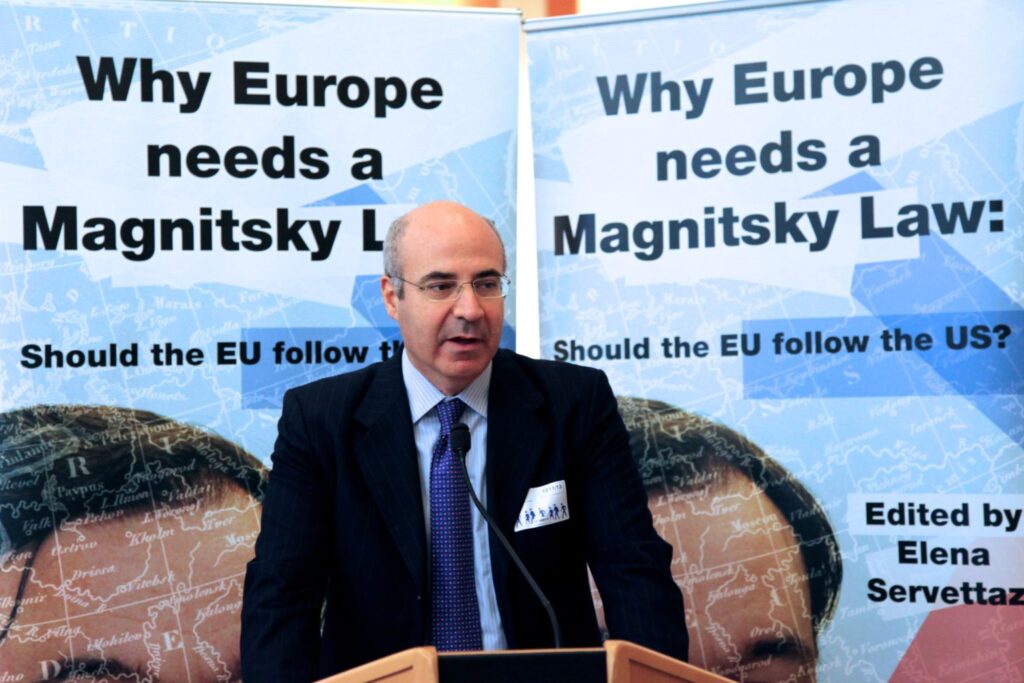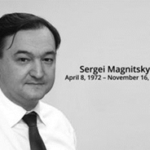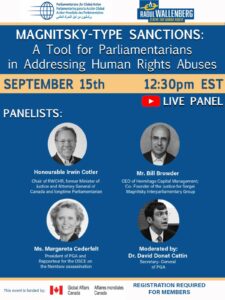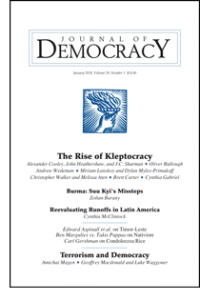 The European Union has officially adopted a new Global Human Rights Sanctions Regime that will implement travel bans and asset freezes against those found responsible for genocide, crimes against humanity, torture, extrajudicial killings and other human rights abuses, the leaders of the bloc’s 27 countries announced Monday, Axios reports:
The European Union has officially adopted a new Global Human Rights Sanctions Regime that will implement travel bans and asset freezes against those found responsible for genocide, crimes against humanity, torture, extrajudicial killings and other human rights abuses, the leaders of the bloc’s 27 countries announced Monday, Axios reports:
Why it matters: The EU is the world’s largest single market area and a leading promoter of democratic values, but has been criticized for its failures to put teeth into its calls for the protection of human rights. The new framework is modeled after the Magnitsky Act, a U.S. law named for investor and activist Bill Browder’s late attorney Sergei Magnitsky, who died in a Russian jail after uncovering a massive fraud scheme allegedly involving government officials.

Credit ESI
A group of 15 civil society organisations, including the Open Society European Policy Institute, Transparency International EU and Global Witness, welcomed the EU’s move but called for additional rules to target corruption, the FT adds.
“Having both these elements is deemed essential to address the way in which dirty deals and state looting by corrupt actors can lead to conflict and human rights violations,” a joint statement by the 15 groups said. “Corruption sustains the financial and political power of kleptocrats and human rights abusers and strips away public funds from the people, crippling systems of accountability and undermining the very principles of democracy.”
“At this point in the world of human rights, ‘Magnitsky’ has become a verb. If you want to sanction somebody, you Magnitsky them,” Browder (above) told the Sydney Morning Herald.
 “This is all for him, it has to bear his name. For his idealism, his strength, one day they will make physical monuments to him all over Russia, but in the meantime we’re going to make legal monuments.”
“This is all for him, it has to bear his name. For his idealism, his strength, one day they will make physical monuments to him all over Russia, but in the meantime we’re going to make legal monuments.”
Browder previously said that a European Magnitsky Act would be “probably the most devastating thing that could happen to the Putin regime” given the property and assets that key players own in Europe. He told Axios that the first targets of the law should be the people who killed Magnitsky — followed swiftly by the perpetrators of the Rohingya genocide in Myanmar, the operators of mass detention camps in Xinjiang, and the authorities cracking down on protests in Hong Kong and Belarus.
BREAKING: After the passage of the EU Magnitsky Act today, EU officials say the first Magnitsky sanctions lists will be in place by early 2021. It won’t be a moment too soon. https://t.co/CZTDWHeYfR
— Bill Browder (@Billbrowder) December 7, 2020
However…..
“The omission of corruption in the EU’s new sanctions regime risks sending the message that Europe is a safe haven for dirty money. So long as kleptocrats, money laundering networks, and their European enablers can continue to use the European market, they can damage the integrity of the European financial system” said Laure Brillaud, senior policy officer at Transparency International EU.
 The EU is a top destination for suspected corrupt officials and businesspeople around the world seeking to launder money and invest in property, education, or even just to have a European bank account, the NGOs’ statement added:
The EU is a top destination for suspected corrupt officials and businesspeople around the world seeking to launder money and invest in property, education, or even just to have a European bank account, the NGOs’ statement added:
For instance, Isabel dos Santos, the daughter of the former Angolan President has been widely accused of corruption since thousands of documents about her business affairs leaked. She is now under investigation in Angola for suspected misappropriation of state funds, and had key business dealings and investments in the EU, including in Portugal and the Netherlands. Keeping the door open to potentially corrupt funds could jeopardize the integrity of the EU’s financial system. …..As more jurisdictions adopt sanctions regimes that tackle corruption, the EU risks becoming a loophole and a safe haven for the corrupt.
A new generation of technocrats must replace the kleptocrats of the past, argues Ellen Johnson Sirleaf, a former president of Liberia, founder and chair of the EJS Presidential Center for Women and Girls, and recipient of a Nobel Peace Prize in 2011. Today, a nonprofit group called Emerging Public Leaders (EPL) has brought the Liberian fellowship model to Ghana and will soon expand to Kenya, she writes for The Economist:
Fourteen years after I began my term as the first woman African head of state, not one other has been elected head of state on the continent (Ethiopia’s President Sahle-Work Zewde was appointed), and women are still sorely under-represented in all public institutions. Amujae, an initiative launched this year by the Ellen Johnson Sirleaf Presidential Centre, encourages women to take up roles in the highest echelons of public leadership, and to bring other women along on the way. True democracy requires true representation.
But Sirleaf’s presidency, which ended in 2018, is regarded with disappointment at home, where allegations of corruption, nepotism and cronyism tarnished her record after she appointed close family members to top government posts, TIME adds.
An Organized Crime and Corruption Reporting Project (OCCRP) investigation into illegal “conflict timber exports” found about 90% of Liberia’s forested land under opaque and corrupt “private use” despite bans on logging and export, were connected to Johnson-Sirleaf’s associates, family and campaign adviser. The national oil company and even charitable foundations were raided, but citizens were too afraid to become whistleblowers or sources due to the power exercised by son at the helm of the military, one expert recalls.







